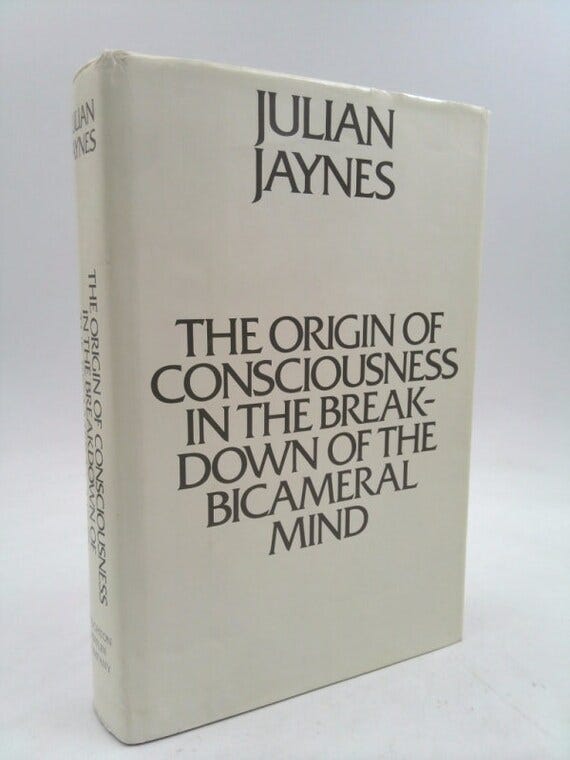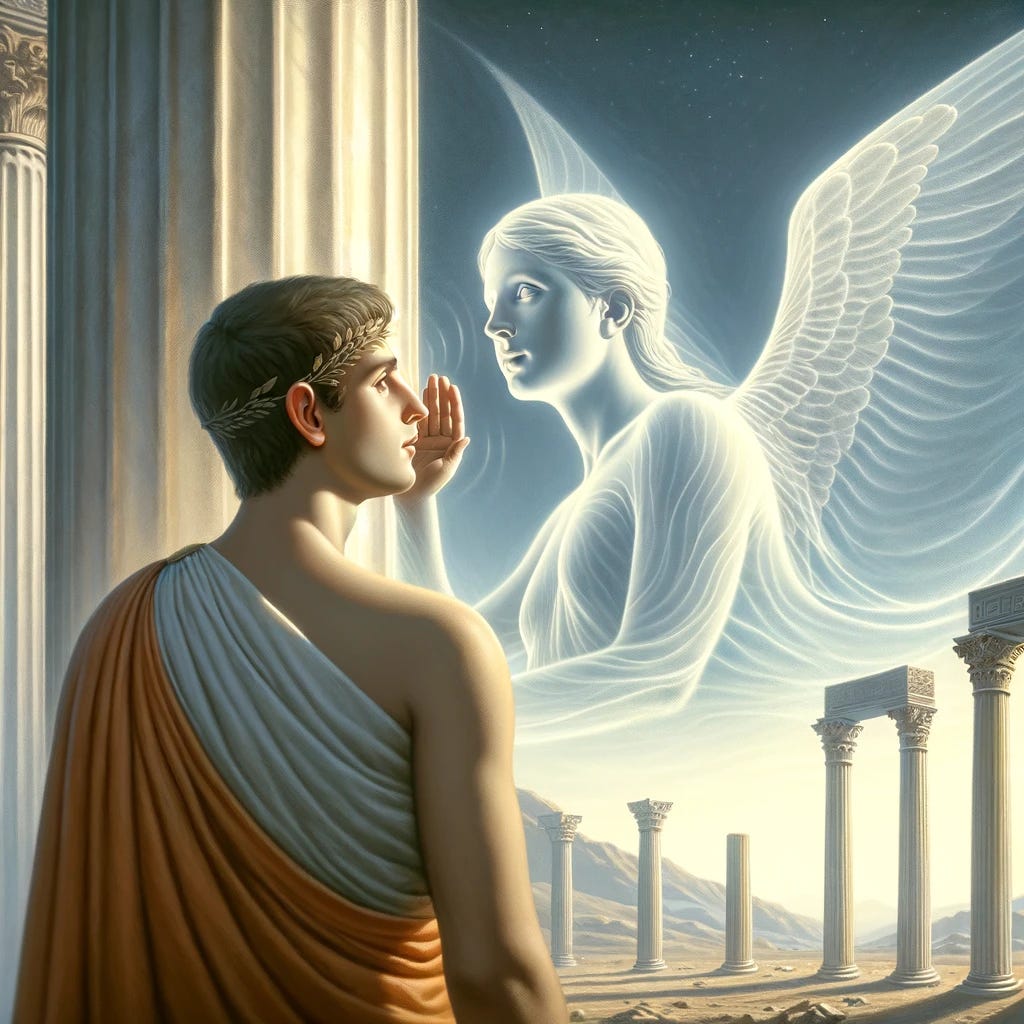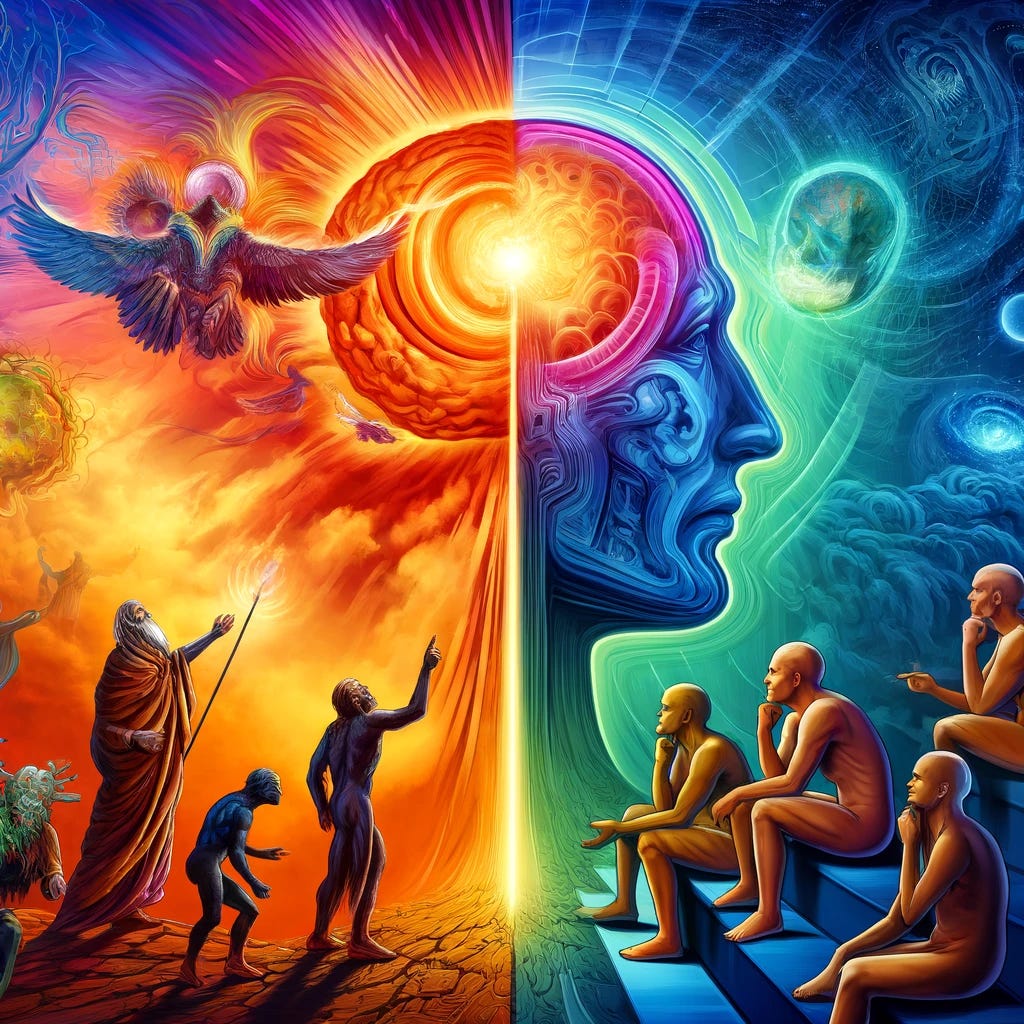Exploring Julian Jaynes' Theory of the Bicameral Mind
Julian Jaynes' groundbreaking theory, presented in his 1976 book, *The Origin of Consciousness in the Breakdown of the Bicameral Mind*, proposes that early human consciousness was fundamentally different from our own today. According to Jaynes, ancient humans were not self-aware in the modern sense but operated through a "bicameral mind" where one part of the brain issued commands that another part followed without question, interpreting these commands as the voices of gods.
Jaynes suggests that these auditory hallucinations, common in early human societies, were not signs of mental illness but a functional part of the human brain's operation. This phenomenon can be evidenced by ancient texts like the *Iliad*, where characters seem to receive their motivations and directives from divine voices, rather than internal decision-making processes. These voices provided a regulatory framework for societal norms and behaviors, deeply influencing the development of early civilizations.
As societies evolved and became more complex, the bicameral mind could no longer accommodate the increasing demands for more nuanced interpersonal communications and decision-making. This necessitated a transition to what we now recognize as consciousness. Linguistic and thematic shifts in historical texts over time reveal this evolution. Characters begin to show signs of introspection and personal deliberation, marking the decline of bicameralism and the rise of a more familiar conscious thought process.
The Origin of Gods and Religion
As the bicameral voices faded, they transformed from literal to metaphorical, from direct voices commanding daily actions to symbolic representations guiding moral and ethical behaviors. This shift is evident in the development of religious systems that moved from enforcing obedience to offering a moral framework. This adaptation helped maintain social cohesion even as personal autonomy increased, showing how religions evolved to meet the changing cognitive needs of society.
Today, Jaynes' theory continues to provoke debate among psychologists, neuroscientists, and historians. While modern neuroscience has offered insights that both challenge and complement his ideas, the discussion enriches our understanding of human consciousness. The exploration of how our cognitive processes are intertwined with cultural developments provides a fascinating perspective on the evolution of societies and religions.
Future research, potentially using advanced technologies like brain imaging and artificial intelligence, promises further insights into this intriguing theory. Understanding the transition from the bicameral mind to modern consciousness could have profound implications for various fields, including mental health, education, and artificial intelligence, influencing how we think about human nature and its development through history.
Julian Jaynes' theory of the bicameral mind provides a provocative lens through which to view the history of human consciousness and the origins of religion. By examining how our ancestors might have experienced the world through a division of cognitive functions, we gain a unique insight into the evolution of thought, society, and belief systems. The continued relevance of Jaynes' theory in contemporary discussions underscores its importance in our quest to understand the complexities of the human mind.
Here is a great overview of the ideas Jaynes espoused 8n his groundbreaking text…





